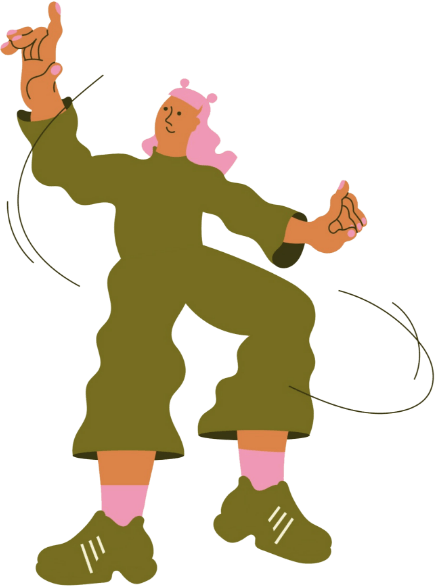The project aimed to build capacity across the support system that exists for refugees and separated children in Edinburgh, through professional Peer Group Mentoring, supporting staff and volunteers. This aimed to positively impact the 70+ young refugees and separated children living in Edinburgh. Additionally, it aimed to develop peer support systems, by establishing two targeted wellbeing groups. The refugees and separated children who participated in these wellbeing groups would have access to opportunities for exploring mental health support. Some had previously received mental health specialist service which has now ended, or not received mental health input before. The project therefore also aimed to support their transition into adulthood.
Improving the mental health of young refugees and separated children in Edinburgh


For staff and volunteers:
To increase knowledge and understanding about the needs of refugees and separated children, and ways to protect and sustain their mental health and wellbeing.
To increase confidence and skills to work in a trauma-informed way.
To increase confidence to deliver mental health and wellbeing support to refugees and separated children.
For the 20 refugees and separated children who participate in the wellbeing groups:
To improve their mental health and wellbeing, reduce loneliness and enhance community connectedness.
To create increased opportunities for peer learning and support.
Key Information
Project Partners
Mental Health Foundation
Geographical reach
Edinburgh
Dates
01/10/2021 – 30/11/2022
Target Groups
Younger people, Socio-economic disadvantage, Refugees
Project Type
Supporting innovation
Background
Refugees and separated children have experienced numerous challenges, in their country of origin, during the journey, and following arrival to the UK. They are often living with bereavement and loss; many have been trafficked. Mental health issues can impact on their ability to reach their potential, socially integrate, and access services. The project also responds to the risks of further exploitation, and it is hoped that increasing stabilisation and promoting a more secure future will support diversion from such risks.
Impact
he last year has provided opportunity for significant learning for all the partners. The original scope of the project was much larger and intended for those staff working in residential settings and foster care settings. Unfortunately, restrictions due to Covid and increased pressures on service demand and staff time had a significant impact both on who was able to participate in the staff Peer Group Mentoring (PGM) and recruitment and engagement of the young people for the participatory photography sessions.
Key successes of this project relate to the positive impact that taking part had on the young people. Participatory photography workshops were found to be an effective way of engaging with unaccompanied young people in an inclusive way that has important, positive effects on their wellbeing and feelings of connection. There was 100% attendance of the 17 young people throughout the workshop week, demonstrating high levels interest. Young people told us they felt more positive, uplifted, connected and included at the end of the week. Young people were also very positive about the social events which happened before and after the workshops.
The PGM training has supported participants to become more aware of the importance of cultural humility and what this means in practice when engaging with unaccompanied young people in discussions around mental health. The next step is to develop further opportunities to work in partnership with the young people and learn how best to support them to thrive as New Scots.

Challenges encountered
- Ordering equipment outwith usual procurement routes took considerable time for Local Authority. Partners able to order equipment more easily on their behalf.
- Time to meet funding evidence requirements was significant as was support for partner organizations.
- Sharing information across numerous partners with different management structures. The original plan for management structure was not found to be feasible. Having online meetings with partners twice weekly was vital for communication.
- Digital access: limited for some staff (residential) and young people.
- Deciding who would be best placed to conduct the evaluation, whether internal or external. Discussed carefully with COSLA prior to MHF evaluation commencing.
- The PGM training was originally intended for residential staff who work with unaccompanied young people. Unfortunately, residential staff were not able to be recruited to the project mainly due to capacity. This was reflected in feedback, where other staff who weren’t in a direct contact role with the young people felt the training was not relevant to them as they do not have direct contact with the young people.
- Time and conflicting demands: in the evaluation, many staff described having time to reflect as ‘a luxury’. Managing everyday work alongside the development and delivery of the project created challenges around prioritisation.
- Project delays; need for flexible responses.
- Responses to survey to gain staff views; deadline extended; managers promoted. Gaining more surveys provided richer data to inform the PGM resources.
- Impact of Covid on communication especially when using interpreters; build relationships and partnerships online. As restrictions eased, the project promoted face to face contact with young people, which was facilitatory.
- Covid impact on staff sickness; covered by others in the team.
- Ensuring information is correctly interpreted instead of paraphrased at risk of some issues being lost – partly a training issue and relates to how staff work with interpreters in certain contexts
- Staff absence leave relating to sickness and impact. The MHF children’s worker was on variable long term sickness absence from November 2021 to the project’s end. This was managed in a variety of ways. Programme Manager and Project Manager at MHF provided extra input. As did Cyrenians. Also Through Care, in addition to their usual roles with this time not being funded through the project.
- Change of Project Manager at MHF in April; a smooth handover occurred promoting the project’s continuity.
Reflections
The main successes of this project relate to the positive impact that taking part had on the young people. PhotoVoice workshops are an effective way of engaging with young unaccompanied migrants and asylum seekers in an inclusive way and that has important, positive effects on their wellbeing and feelings of connection. There was 100% attendance throughout the workshop week, which demonstrated high levels of interest and young people told us they felt more positive, uplifted, connected and included at the end of the week.
The PGM training has helped those who took part become more aware of the importance of cultural humility and what this means in practice when engaging with young unaccompanied asylum seekers in discussions around mental health. The next step is to develop further opportunities to work in partnership with the young people and learn how best to support them to achieve and thrive as New Scots.


